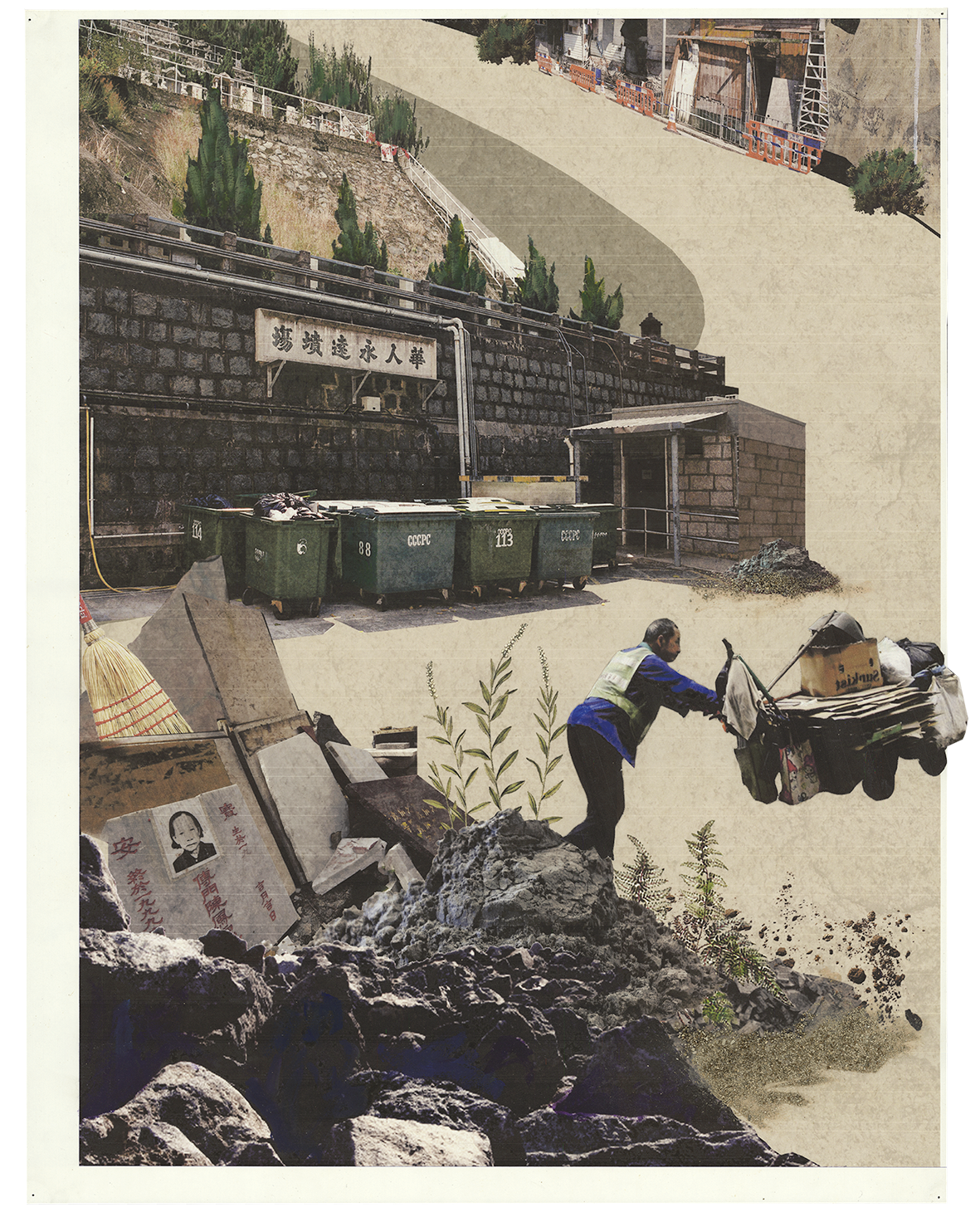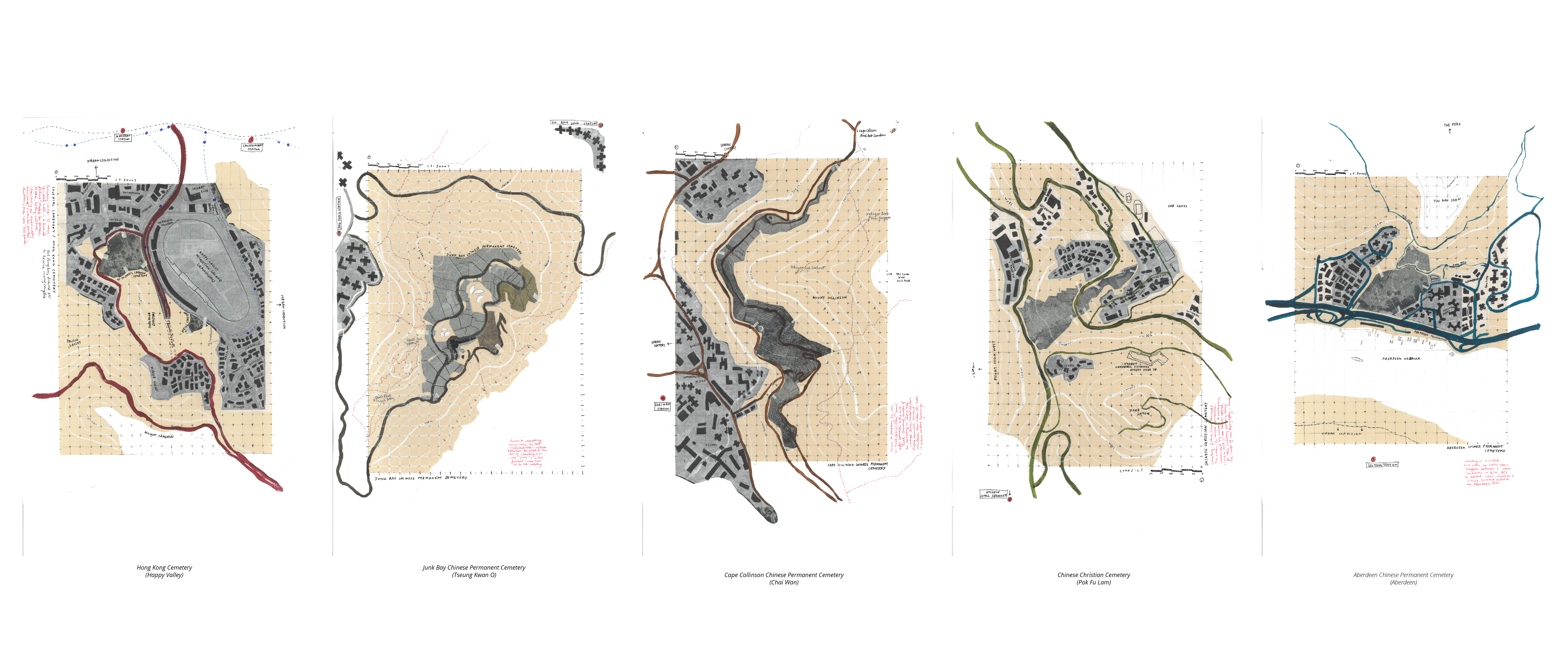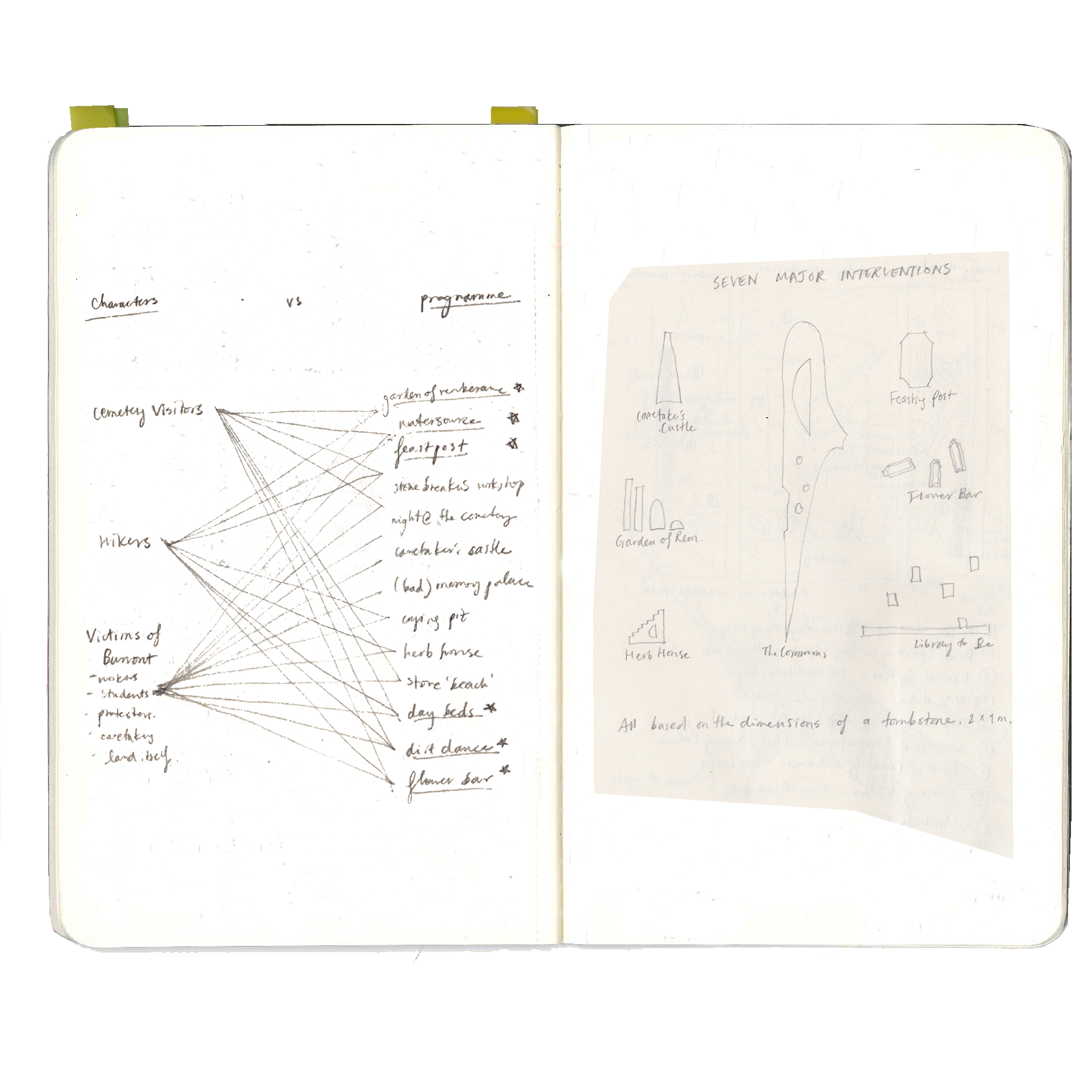7.2 x 6.5 ft / 220 x 200 cm
mixed media, acrylic, ink, dirt, collage, analogue & digital
Charles Goodwin Sands Thesis Medal
Architecture, urbanism, and design, have always been affected by anxieties and obsessions with health.
Today’s hyper-efficient cities are the breeding grounds for burnout, the chronic illness of our time. Infected by neoliberal attitudes, contemporary minds operate at speeds beyond the biological body. Burnout can thus be defined as the destruction of the biological body in its adaptation to the enhanced mind.
In a world where value is determined by both physical-mental optimization, the attention economy heighted by technology overstimulates both human and non-human entities. By banishing “imperfect health” and death to geographic peripheries, society harmfully circumvents the consequence of over exploitation to promote 24/7 productivity. Urban cemeteries of Hong Kong, previously integral as civic spaces of gathering and pause, are likewise speculated to rapidly disappear for the city to grow.
Acknowledging the impossibility of retreat, this thesis proposes an Apothecary Grave-Garden for victims of burnout in a still functioning urban cemetery. Seven multi-scalar interventions, The Commons, Garden of Remembrance, (Bad) Memory Palace, Feasting Post, Flower Bar, Herb House, and Caretaker’s Castle, fragment the forgotten sanatorium typology to create a third (public) space between the home and the clinic. Formally, these multi-scaler Architectures of Care demand hyper-awareness by provoking both cerebral and corporeal counterparts. Meandering through this intentional but open ended experience that highlights the gift of life, perhaps architecture can serve as an alternative medium in realigning the mind and body.
Projected to co-exist with the still functioning urban cemetery, this apothecary grave-garden simultaneously cares for burnt-out bodies and space, taking the issue of health from individual responsibility and restoring it more appropriately to our social surroundings – a reminder to embrace slowness and inefficiencies in a Neoliberal Age
mixed media, acrylic, ink, dirt, collage, analogue & digital
Charles Goodwin Sands Thesis Medal
Architecture, urbanism, and design, have always been affected by anxieties and obsessions with health.
Today’s hyper-efficient cities are the breeding grounds for burnout, the chronic illness of our time. Infected by neoliberal attitudes, contemporary minds operate at speeds beyond the biological body. Burnout can thus be defined as the destruction of the biological body in its adaptation to the enhanced mind.
In a world where value is determined by both physical-mental optimization, the attention economy heighted by technology overstimulates both human and non-human entities. By banishing “imperfect health” and death to geographic peripheries, society harmfully circumvents the consequence of over exploitation to promote 24/7 productivity. Urban cemeteries of Hong Kong, previously integral as civic spaces of gathering and pause, are likewise speculated to rapidly disappear for the city to grow.
Acknowledging the impossibility of retreat, this thesis proposes an Apothecary Grave-Garden for victims of burnout in a still functioning urban cemetery. Seven multi-scalar interventions, The Commons, Garden of Remembrance, (Bad) Memory Palace, Feasting Post, Flower Bar, Herb House, and Caretaker’s Castle, fragment the forgotten sanatorium typology to create a third (public) space between the home and the clinic. Formally, these multi-scaler Architectures of Care demand hyper-awareness by provoking both cerebral and corporeal counterparts. Meandering through this intentional but open ended experience that highlights the gift of life, perhaps architecture can serve as an alternative medium in realigning the mind and body.
Projected to co-exist with the still functioning urban cemetery, this apothecary grave-garden simultaneously cares for burnt-out bodies and space, taking the issue of health from individual responsibility and restoring it more appropriately to our social surroundings – a reminder to embrace slowness and inefficiencies in a Neoliberal Age







